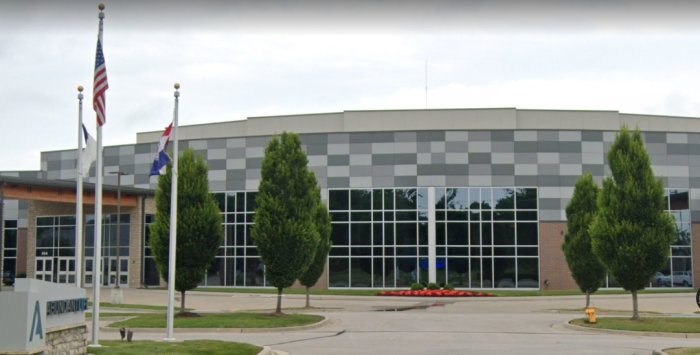Missouri county agrees to pay $150K to settle megachurch's lawsuit over COVID-19 restrictions

A megachurch in Missouri has been awarded a settlement of nearly $150,000 following a dispute with the local government over coronavirus restrictions.
Jackson County, Missouri, home to the state’s largest city of Kansas City, agreed to pay $146,750 to Abundant Life Baptist Church in Lee’s Summit as part of a settlement in a lawsuit filed by the church against the county more than a year ago. The church raised concerns that the county's coronavirus restrictions treated places of worship more harshly than secular entities.
Under the terms of the settlement, Jackson County vowed that in exchange for Abundant Life Baptist Church dropping the lawsuit, it would ensure that future enforcement measures would not impose stricter requirements on religious organizations than their secular counterparts. The Kansas City Star reported that the Jackson County legislature voted to approve the settlement Monday.
Legislator Dan Tarwater explained to the KC Star that the motivation behind approving the settlement was because they believed they were “going to lose” the case. Tarwater was one of six Jackson County legislators to approve the settlement.
Three of his colleagues voted against approving the settlement, which will be paid by the county government and Truman Medical Centers that runs the county’s health department.
In the lawsuit, filed in the U.S. District Court for the Western District of Missouri in May 2020, Abundant Life Baptist Church argued that under reopening guidelines that became effective in Eastern Jackson County on May 11, “non-essential retail stores, personal services, and restaurants and bars serving food could reopen to the public if they follow CDC recommended social distancing recommendations, adopt a social distancing protocol, and restrict the number of individuals in a building using formulas based on the facility’s occupancy load.”
Secular businesses were allowed to reopen at 10% to 25% capacity based on a building’s size. By contrast, the county classified churches as “large gatherings and social events” in the reopening plan. Businesses in this category could not have more than 10 people in their venue, regardless of its size.
“Defendants’ orders impermissibly discriminate against religiously-motivated gatherings and in favor of commercially-motivated gatherings,” the lawsuit asserted. The complaint noted that based on guidance cited by then-Attorney General William Barr, “Religious institutions must not be singled out for special burdens.”
Specifically, Barr maintained that “the First Amendment and federal statutory law” prohibits governments from “impos[ing] special restrictions on religious activity that do not also apply to similar nonreligious activity.” The lawsuit also implied that the coronavirus restrictions imposed in eastern Jackson County ran afoul of the Missouri Constitution, which guarantees that “all men and women have a natural and indefeasible right to worship Almighty God according to their own consciences.”
The Missouri Constitution also mandates that government “shall ensure that any person shall have the right to pray individually or corporately in a private or public setting so long as such prayer does not result in disturbance of the peace or disruption of a public meeting or assembly.” The lawsuit asked a judge to declare that: “Defendant’s plan, orders to effectuate the Plan, criteria, guidance, interpretations, policies and practices are facially unconstitutional in that they single out religious activity for disparate and unfair treatment.”
The plaintiff also sought an order requiring the defendants, which included Jackson County itself, the Jackson County Health Department, Jackson County Executive Frank White Jr., Jackson County Health Director Bridgette Shaffer and Jackson County Administrator and Emergency Management Coordinator Troy Schulte, to pay its attorneys’ fees.
In the time between the lawsuit and the announcement that Jackson County would pay Abundant Life Baptist Church nearly $150,000, judges have issued multiple rulings in favor of places of worship seeking relief from coronavirus restrictions. Most notably, in its November ruling in Roman Catholic Diocese of Brooklyn v. Cuomo, the U.S. Supreme Court struck down similar worship restrictions that limited in-person worship gatherings to 10 people in certain parts of New York state.
“Even in a pandemic, the Constitution cannot be put away and forgotten,” the justices concluded. “The restrictions at issue here, by effectively barring many from attending religious services, strike at the very heart of the First Amendment’s guarantee for religious liberty.”
Ryan Foley is a reporter for The Christian Post. He can be reached at: [email protected]




























